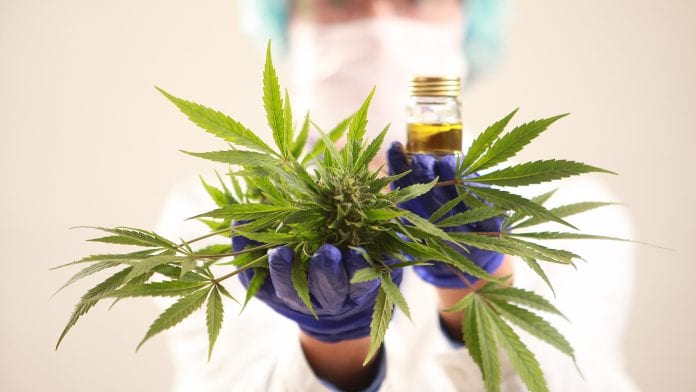
A Washington State University study has examined how cannabis combats stress, anxiety and depression by looking at different strains and quantities of cannabis being inhaled by patients at home.
The work, published in the Journal of Affective Disorders, suggests that inhaling cannabis can significantly reduce short-term levels of depression, anxiety, and stress but may contribute to worse overall feelings of depression over time.
This new study is one of the first attempts by United States scientists to assess how cannabis with varying concentrations of THC and CBD affect medicinal cannabis users’ feelings of wellbeing when inhaled outside of a laboratory.
Current research not sufficient
Previous research to see whether cannabis combats stress and anxiety has be done with THC only strains that have been put into a capsule – but this study looks at the impact of cannabis when it is inhaled.
Carrie Cuttler, clinical assistant professor of psychology at Washington State University (WSU) and lead author of the study, said: “Existing research on the effects of cannabis on depression, anxiety and stress are very rare and have almost exclusively been done with orally administered THC pills in a laboratory.
“What is unique about our study is that we looked at actual inhaled cannabis by medical marijuana patients who were using it in the comfort of their own homes as opposed to a laboratory.”
The team found that one puff of cannabis high in CBD and low in THC was optimal for reducing symptoms of depression, two puffs of any type of cannabis was sufficient to reduce symptoms of anxiety, while 10 or more puffs of cannabis high in CBD and high in THC produced the largest reductions in stress.
Cuttler continued: “A lot of consumers seem to be under the false assumption that more THC is always better. Our study shows that CBD is also a very important ingredient in cannabis and may augment some of the positive effects of THC.”
Cannabis combats stress, anxiety and depression
The results of the study showed that patients inhaling cannabis saw a significant reduction in their adverse feelings with depression symptom being reduced in 89.3% of sessions. However, the study also revealed that the symptoms of depression were exacerbated in a total 3.2% of sessions, and there was no change in 7.5% of sessions.
Symptoms of anxiety were reduced in a total of 93.5% of tracked sessions but were exacerbated in 2.1% of sessions, and there was no change in symptoms for 4.4% of sessions. Symptoms of stress were reduced in 93.3% of tracked sessions, increased in 2.7% of sessions, and there was no change in reported levels of stress for 4% of sessions.
The study also compared the impact of cannabis on these symptoms between the sexes and found that women perceived a greater reduction in symptoms of anxiety than men did.
Dosage and the interaction between THC and CBD
The study compared different strains of cannabis that had different levels of THC and CBD to see if there was any difference.
When studying the effects on depression, the study revealed a significant THC and CBD interaction and the greatest reduction in ratings of depression were reported after using cannabis with relatively low levels of THC and relatively high levels of CBD. There was also a nonsignificant effect of dose on change in symptoms of depression.
Contrastingly, when looking at anxiety the study showed that there was no significant interaction between THC and CBD, and neither THC nor CBD alone were predictors of change in anxiety ratings. Results of models testing change in ratings of anxiety across different doses also revealed a nonsignificant linear effect. However, the team tested several models to explore curvilinear relationships – finding a significant curvilinear relationship. Further contrasts revealed that one puff produced significantly smaller changes in ratings of anxiety than all other doses, but no other differences across doses beyond one puff were detected.
When looking at whether cannabis combats stress, however, the study revealed a significant THC and CBD interaction, whereby ratings of stress were reduced the most after using cannabis with relatively high levels of THC and relatively high levels of CBD. Doses In contrast, strains with high THC/low CBD, low THC/high CBD, or low THC/low CBD, showed no appreciable differences in symptom change. Varying doses revealed a significant linear effect of dose and significant reduction of symptoms when having up to ten puffs.
Collecting cannabis impact data
The study used data taken from an app which provides medical cannabis users a means of tracking how different doses and types of cannabis affect a wide variety of symptoms of wellbeing.
The users rate the symptoms they are experiencing before using cannabis on a scale of 1-10 and then input information about the type of cannabis they are using. Twenty minutes after inhaling, they are prompted to report how many puffs they took and to rerate the severity of their symptoms.
Cuttler and WSU colleagues Alexander Spradlin and Ryan McLaughlin used a form of statistical analysis called multilevel modelling to analyse around 12,000 anonymous app entries for depression, anxiety and stress. The researchers did not receive any of the app users personally identifying information for their work.
Cuttler said: “This is to my knowledge one of the first scientific studies to provide guidance on the strains and quantities of cannabis people should be seeking out for reducing stress, anxiety and depression. Currently, medical and recreational cannabis users rely on the advice of bud tenders whose recommendations are based off of anecdotal not scientific evidence.”
The study is among several cannabis-related research projects currently underway at WSU, all of which are consistent with federal law and many of which are funded with Washington state cannabis taxes and liquor license fees.




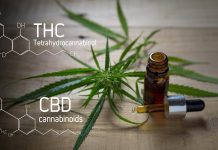

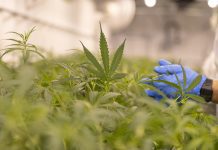
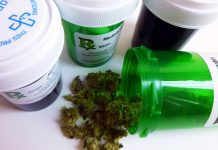
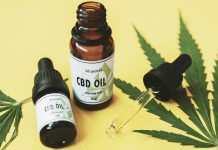










What’s the citation for this ?
Hi Kimberly,
The citation is Cuttler, Carrie & Spradlin, Alexander & Mclaughlin, Ryan. (2018). A Naturalistic Examination of the Perceived Effects of Cannabis on Negative Affect. Journal of Affective Disorders. 235. 10.1016/j.jad.2018.04.054.
Kind regards
MCN Team
Thanks for sharing such informative content. I never have consumed cannabis myself but one of my friends is using cannabis to cure his back chronic pain and he say it is helps to reduce the pain and also help him to sleep well which he was not able to do for a long time due to his pain. So I guess cannabis really have some health benefits.
Thanks for sharing the information about Cbd products and how its growing. Cbd products are gaining popularity among people and they are gaining lots of benefits from these products.
I think you completely missed the point